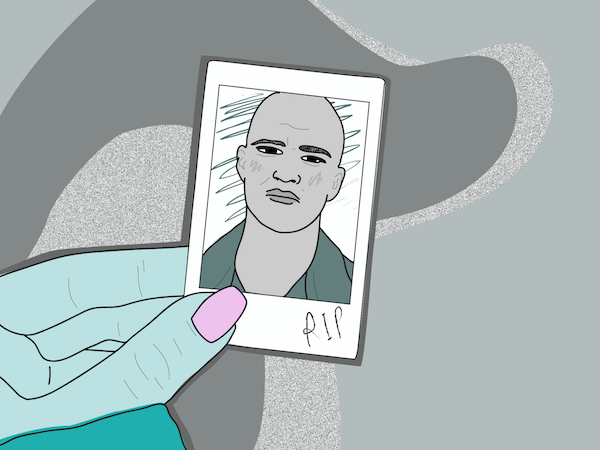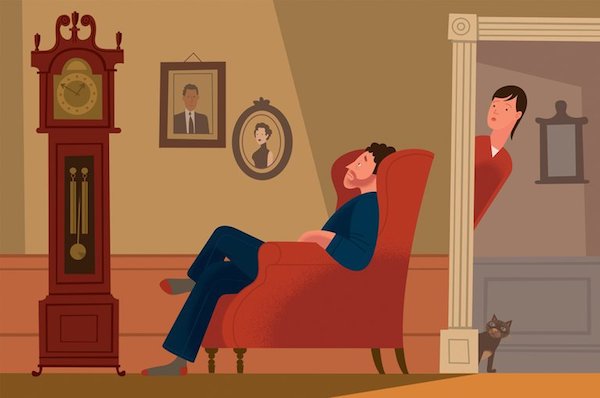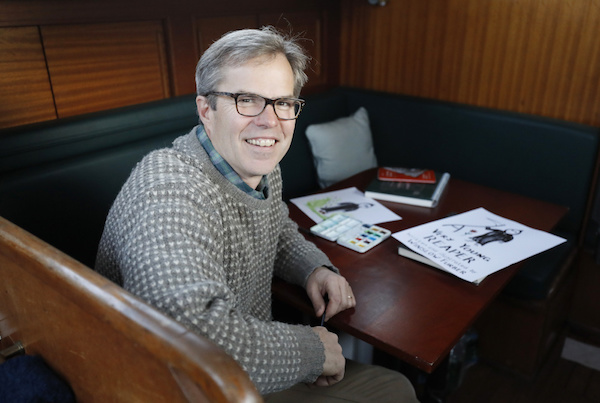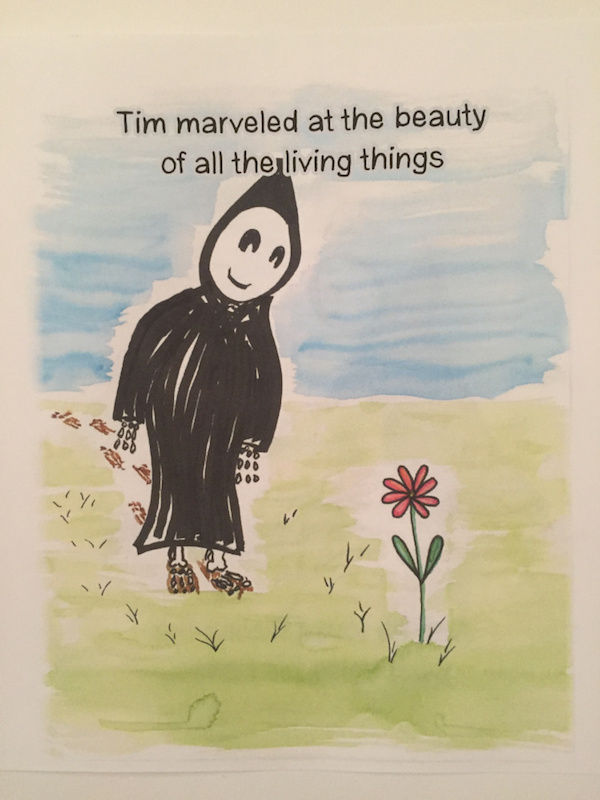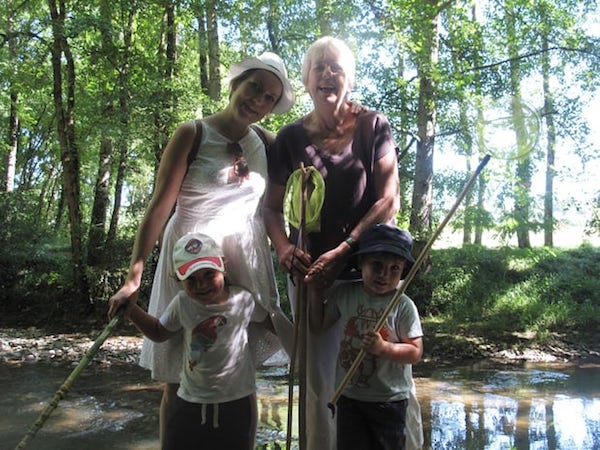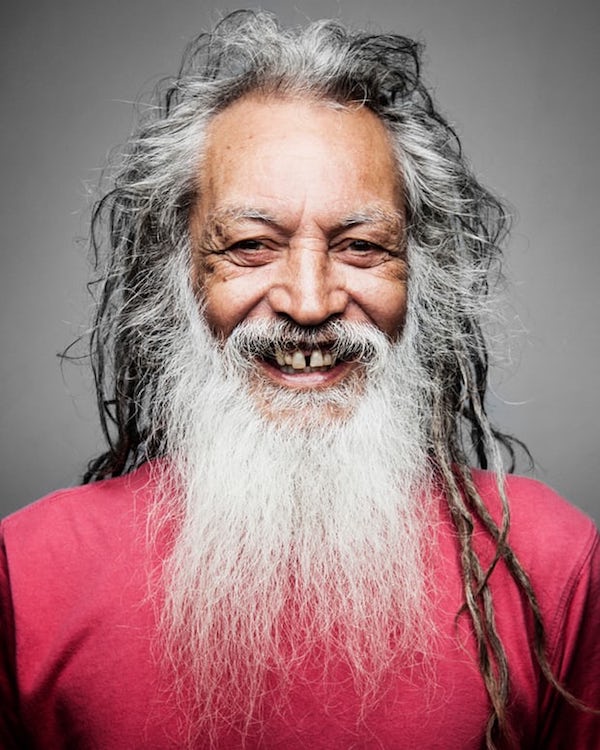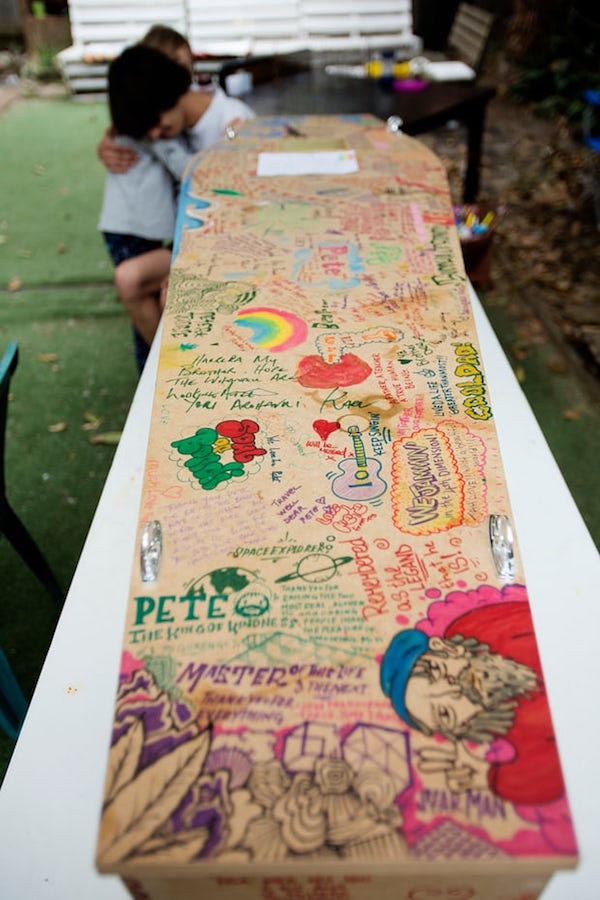By
[G]rief is hard enough in itself.
But when your feelings towards the person who died weren’t all warm and loving, grief becomes complicated.
Take the death of Mark Salling, who took his life after pleading guilty to the possession of thousands of images of child porn. It’s natural to feel grief at his passing, but this comes tinged with guilt (are you allowed to feel sad when the person who died did a terrible thing?), resentment, confusion and hurt.
Or take the passing of a parent who treated you badly, an ex-partner you cut out of your life, or a relative with whom you had a complicated relationship.
Grieving in these cases is a murky mess that can leave you feeling isolated and mentally tangled. Are you supposed to grieve? Are you allowed to still feel anger at someone who’s died?
Here’s some advice on coping.
Give yourself permission to grieve
Regardless of someone’s actions, as terrible as they may be, they’re still a person who was around and now isn’t. It’s natural to feel shock and deep sadness, even if you hadn’t had contact for years or your opinion of them has long been negative.
Don’t feel guilt for feeling deeply sad that the person has died. They had an impact on your life in some way, and it’s okay to mourn them as a result.
That doesn’t mean you’re forgetting what they did. You can feel more than one thing at the same time. Give yourself permission to feel grief – it’s better to experience and explore it than try to hold it all back.
It’s okay to feel anger
While the person’s death may bring up old feelings of hurt and anger, for someone else it may be a much more straightforward relationship. Cue tributes calling them a wonderful person.
That can make you feel like thinking or feeling anything negative towards the deceased is disrespectful. It’s not.
Someone’s death does not erase the effect they had on other people, and their disappearance doesn’t erase the trauma they may have left behind.
You are not being disrespectful for feeling rage over the person’s actions. You are allowed to feel angry.
Be aware that the person’s death will trigger different feelings in others
Within the death of Mark Salling, a lot of different emotions will be triggered.
‘Everyone’s grieving something,’ Andy Langford, of Cruse Bereavement Care, tells Metro.co.uk. ‘They’re grieving him, or something he’s done.’
People may be mourning Mark’s loss, while others may be triggered by discussions of child abuse being brought into focus, or upset by a high profile suicide.
That’s the case with any death. While you might be angry, someone else will just be incredibly sad. Another will be even angrier. Someone who didn’t know the person might be triggered by the story of their death or what they did.
Seeing each other’s reactions won’t be helpful, and neither will arguing with each other about the ‘right’ response to the person’s death.
hile you may want to tweet about how the person is awful, another might need to express their mourning. It’s not fair to chip in on someone else’s process and criticise how they feel – grief is complex for everyone, and you have to respect that.
It’s hard, but try to keep your feelings about the deceased out of the public eye, or at least let the initial shock and sadness simmer down. You never know how your tribute or anger could bring up feelings in someone else.
‘People need to be careful with what they put on social media,’ advises Andy. ‘It’s permanent, it’s there, and people can use it however they like.
‘When people respond in anger, they can inflict disquiet and pain in others. This doesn’t diminish the pain you’ve experienced.’
Don’t react too quickly
When you’re experiencing a massive cocktail of different emotions, it’s easy to act rashly.
Take a breather, ask for some time off work if you need to, and avoid any situations where you might do something you regret.
It may be tempting to arrive at the funeral and announce all the things the person who died did to hurt you, but this will likely cause hurt to others and leave you feeling empty. Living out those immediate reactions is rarely as satisfying as you imagine.
Accept that resolution may not come in the way you expect
When you’ve had a complicated relationship with someone, you fantasise for years about finally getting that big showdown moment; the time when you’ll confront them with all that they did wrong, they’ll understand and apologise, and you’ll feel released.
Very few people actually get that showdown moment.
That doesn’t mean you can’t get some closure. You may be able to move forward by chatting to a therapist, going through a period of mourning, doing the empty chair exercise (exactly what it sounds like. You address someone as if they were sitting in an empty chair opposite you), finding out more about them, or gaining a greater understanding of why they did what they did.
There are many different forms of resolution, and the person’s death does not have to prevent you from continuing to live your most fulfilled life.
Write a letter
Writing a letter to that person is one way to get a sense of closure, and a way to explore all the different things you’re feeling. It’s a safe space to express emotions that might not be wise to share publicly, whether that’s resentment or a profound sense of loss.
Dedicate some time to getting it all out on some paper for a sense of release.
It’s up to you what you do with the letter afterwards – keep it, burn it, give it to someone so they can understand what you’re going through.
Just know that this letter is for your benefit, no one else’s, and you should feel free to write whatever you like without any shame or guilt.
Ask for help if you need it
There is absolutely no shame in finding someone’s death difficult to deal with, especially when they did something that caused serious emotional or physical pain.
Ask your GP to refer you for bereavement counselling, or find a private therapist with whom you can arrange as many sessions as you need.
Don’t worry that you won’t have anything to say or that you don’t really know what you want to achieve. Therapy is a safe space where you can explore your feelings with no pressure, seeing what comes up and dealing it thoughts as they come.
It sounds scary, but it’s not, and it can make getting through the mourning process much less distressing.
Remember that there’s no ‘right’ way to grieve
Everything you feel is entirely valid – hate, anger, hurt, loss. It’s all okay. You can’t blame yourself for how you feel in reaction to someone’s death.
‘Every case is different and somewhat unpredictable,’ Marcus Gottlieb of Notting Hill Therapy tells us. ‘If someone’s been cut out of your life, or you’re deeply angry about what they did at some point, your feelings on losing them – a “bereavement” which of course you may not even know about until much later – are liable to be intensely complex and hard to articulate.
‘But then grief can ALWAYS entail a different, individual cocktail of emotions – sadness, despair, relief, numbness, anger and so on.
‘There’s no “right” way, and there’s no “right” length of time to go through the experience. Rituals can help, conversation can help, time above all else.’
Complete Article ↪HERE↩!

